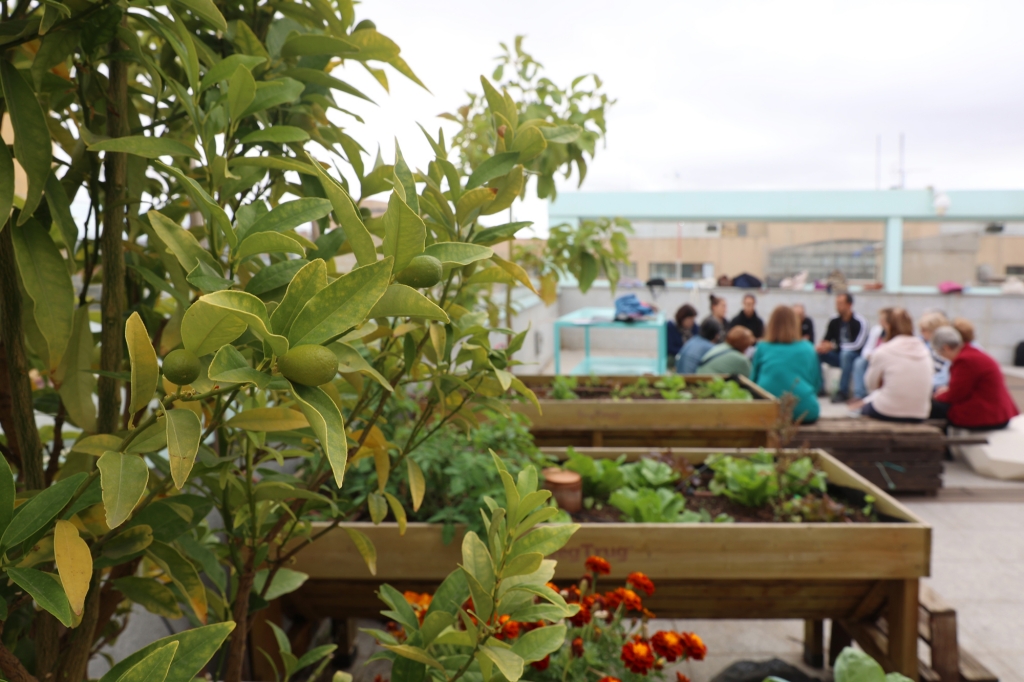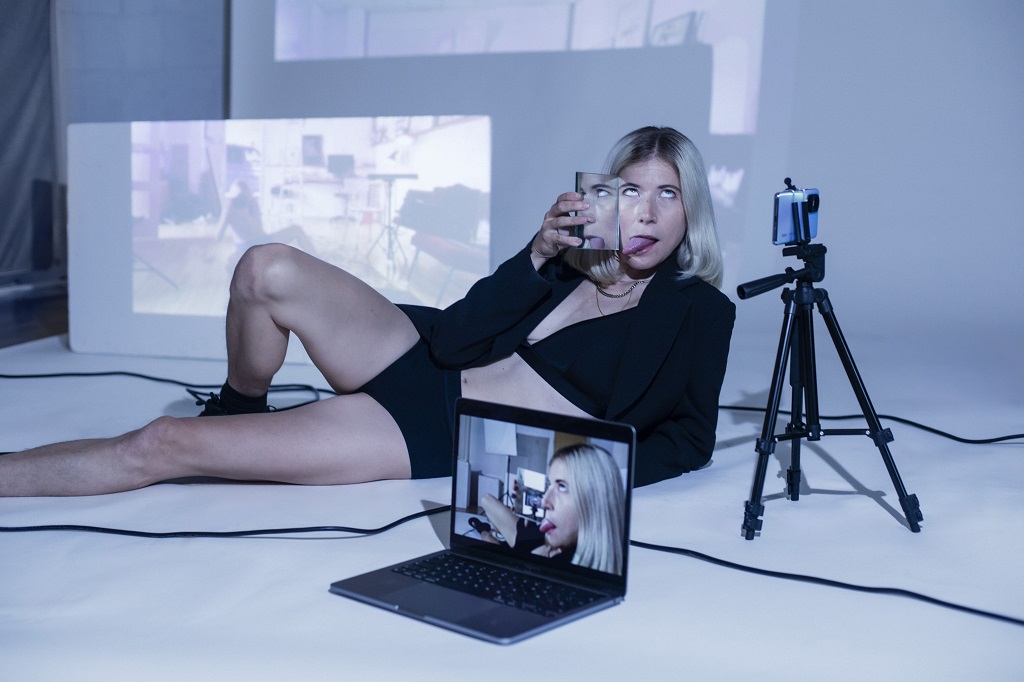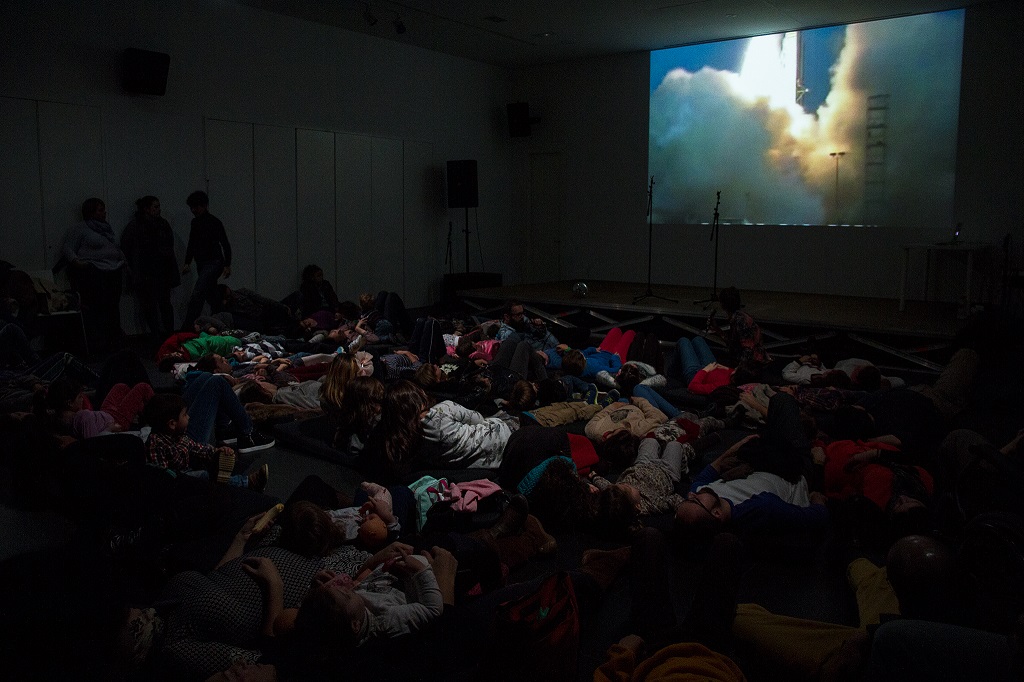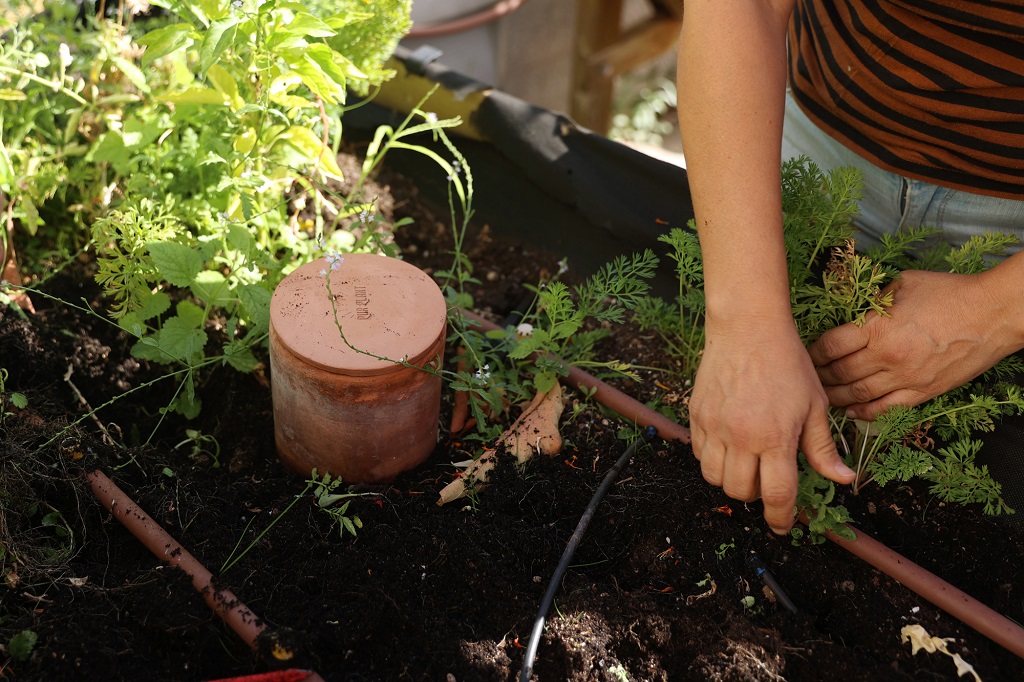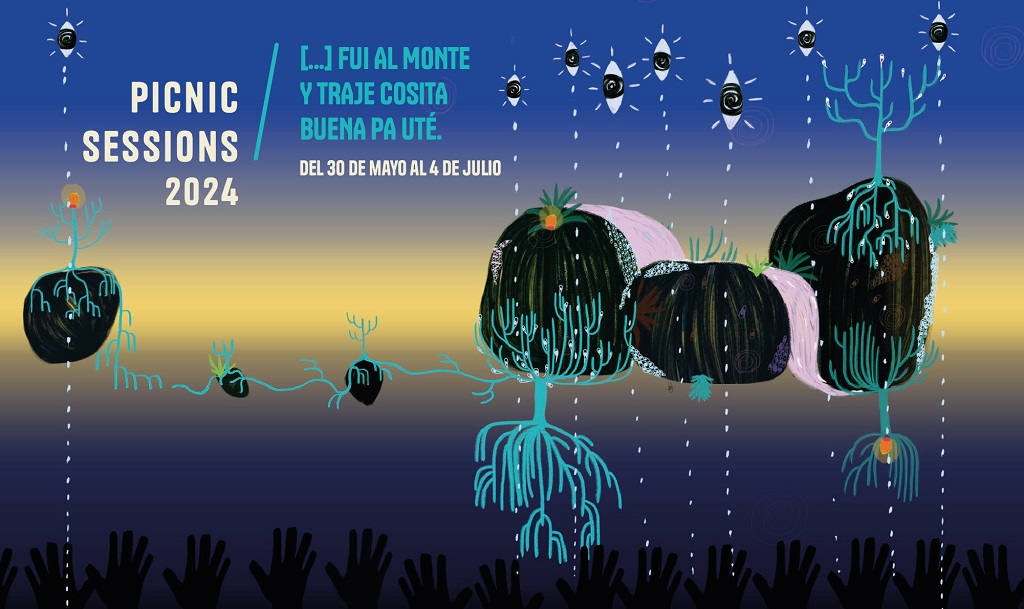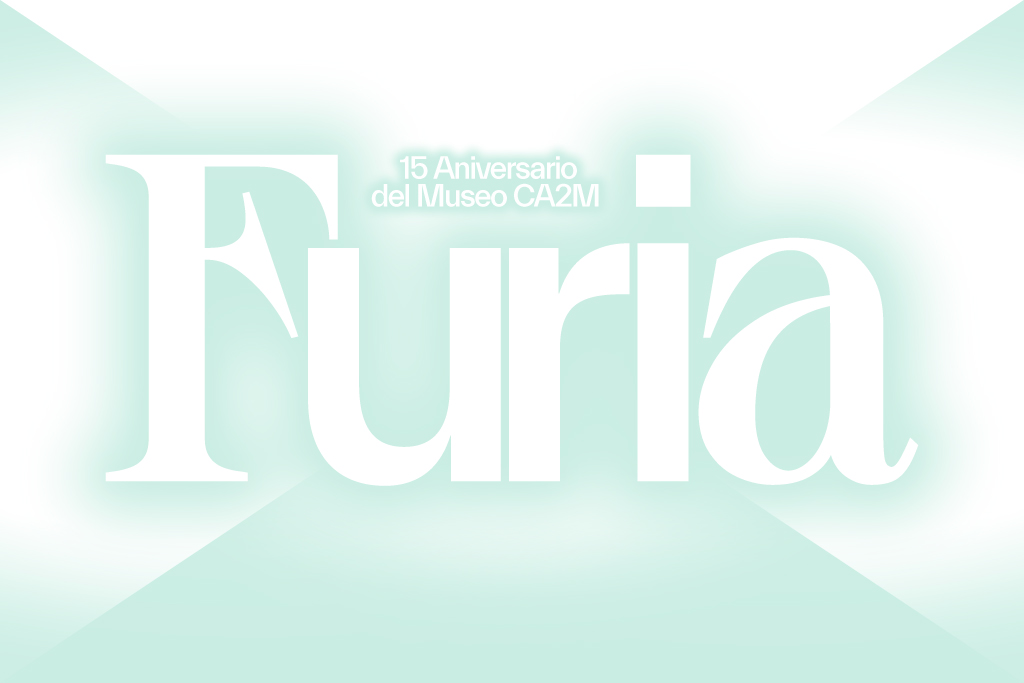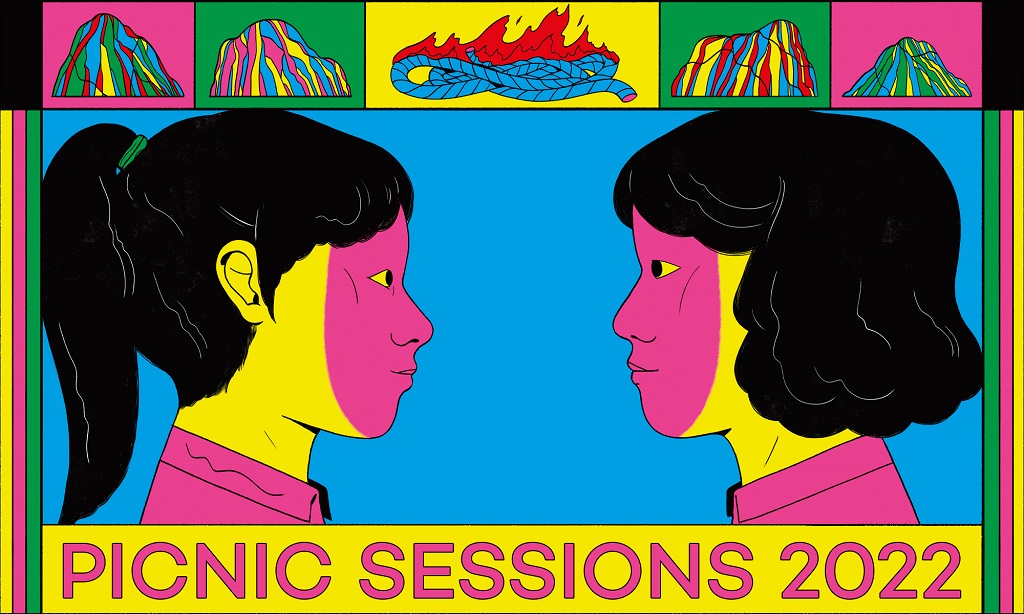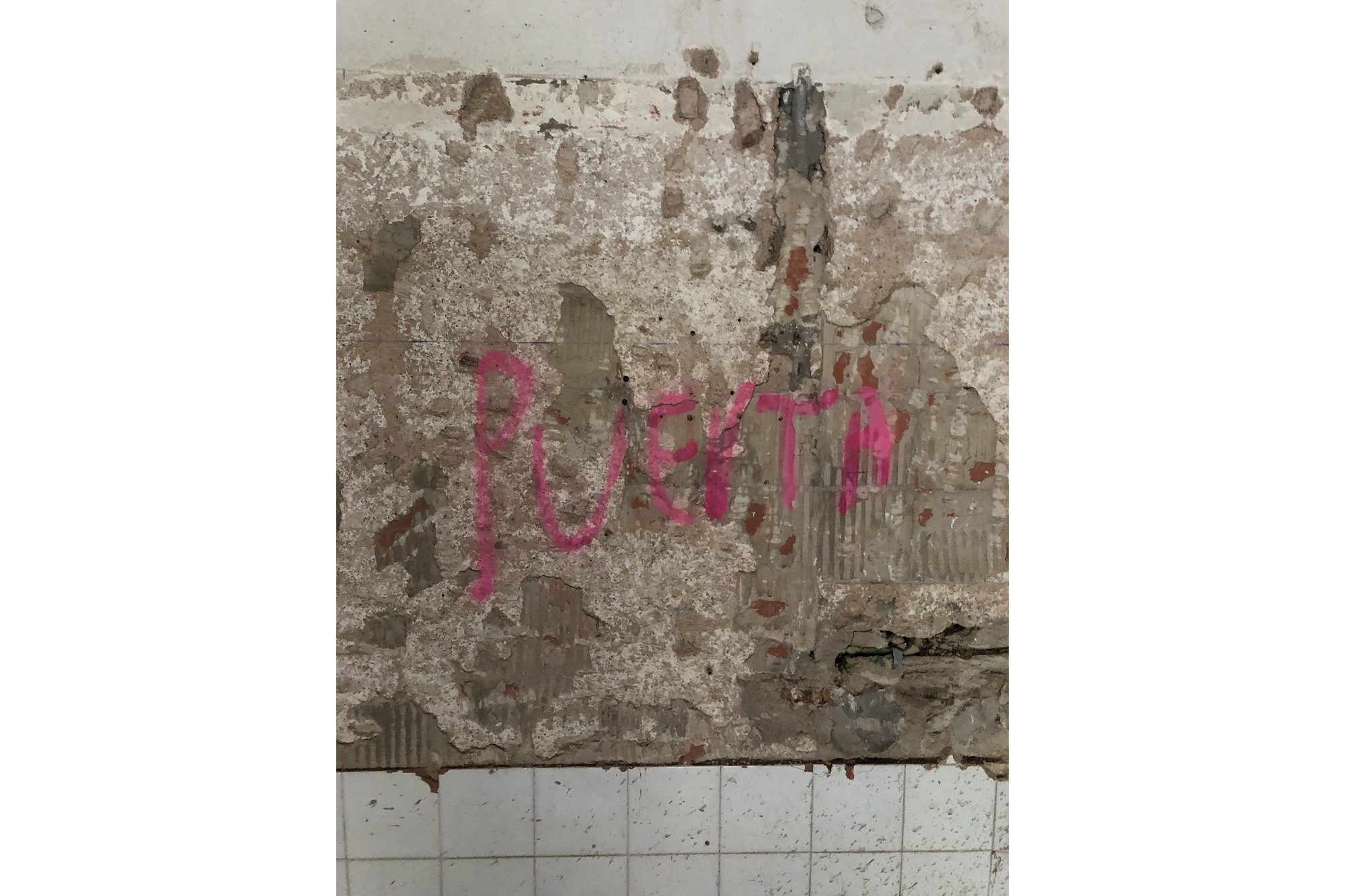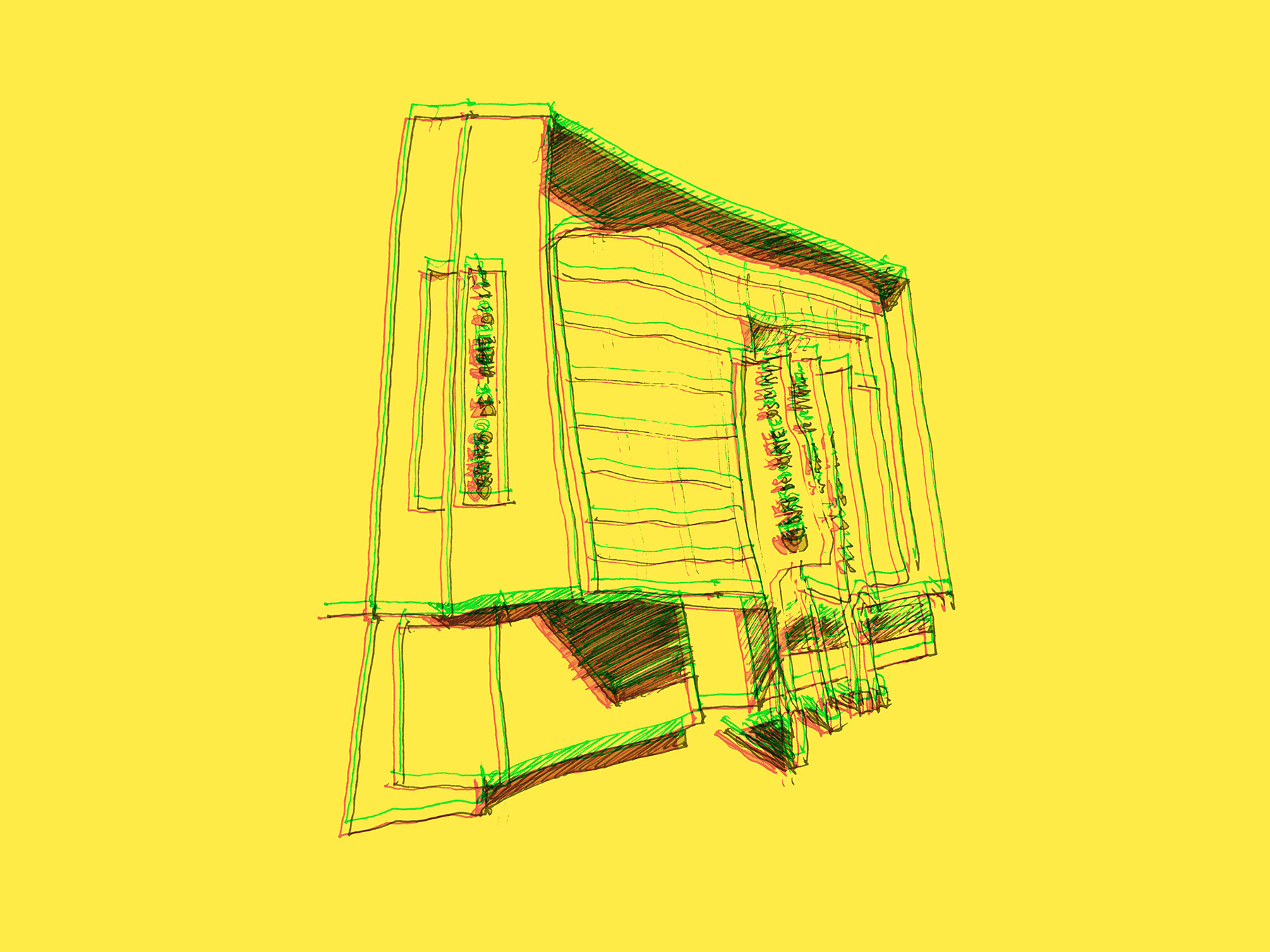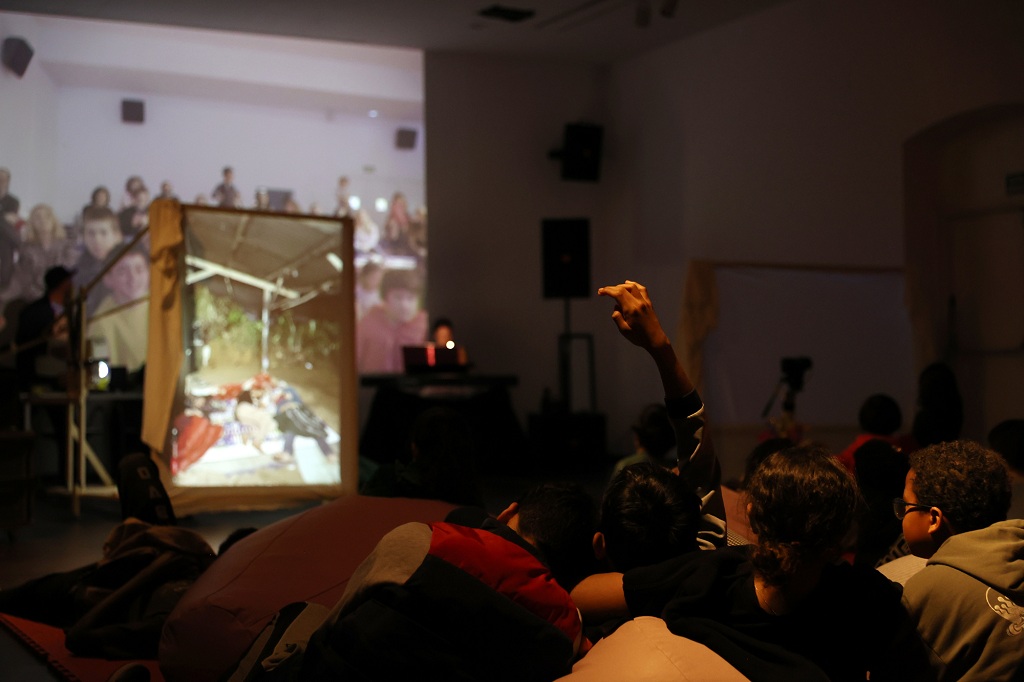This year, after a decade working together in the vegetable garden, we want to focus on experiences that give you the skills and confidence you need to cultivate a vegetable garden on your own. Whether for your private vegetable garden or our collective one on the Museo CA2M roof terrace, we’ll cover everything you need to achieve your goal and carry out a large-scale project with self-assurance. We’ll also run other workshops related to nature and environmental conservation from the perspective of our cities.
Roof Terrace Garden is a space where different generations come together to learn, build and share knowledge for the collective creation of a new urban model based on ecological sustainability and putting the good life into practice. It’s a space for devising a transition to a world that is able to provide a robust response to the major challenges of the twenty-first century.
Xisela Garcia Moure provides training in organic farming, permaculture and specialised techniques for urban vegetable gardens and sustainable food. Plus, she’s a resident of Móstoles.
MODULE 3
We say goodbye to our climate shelter with a cutting exchange activity to reproduce our little plants and continue creating a green oasis at home.
- 19 September – Introduction to the autumn garden
We kick off the season by reviewing what we learned during the months in the run-up to summer. We’ll share some new tips and introduce new attendees to the world of organic gardening.
- 26 September – Preparing the autumn garden
In this practical workshop we’ll plunge our hands into the soil to remove the summer crops and start preparing the soil for new plants.
MODULE 4
We say goodbye to our climate shelter with a cutting exchange activity to reproduce our little plants and continue creating a green oasis at home.
- 3 October – Homemade composting workshop
No organic garden is complete without finding the best way to make its own fertiliser with the remains of previous crops and reusing the resources offered by the environment. Learn everything you need to know to make your own compost, both at home and in your garden.
- 10 October – Autumn associations in the garden
A new look at the association of crops but this time rethinking autumn vegetables. Help us design the garden that will feed us through the winter.
- 17 October – Autumn planting
We plunge our hands into the soil again but this time armed with the knowledge acquired in the previous sessions and planting our definitive autumn/winter garden.
- 24 October – Harvesting and using aromatic plants
A garden isn't all about vegetables. Aromatic plants have many functions and add a slice of joy to any garden. Learn about their uses and carry out some simple practices to harness all their properties.
- 31 October – Excursion to a garden
There’s no better way to end our gardening series than by getting out and visiting a garden to see how you can apply everything you've learned in a family-sized plot.
- 7 November – Caring for indoor plants I
We haven't forgotten our beloved houseplants. In this workshop we share tips on caring for and maintaining indoor plants.
- 14 November – Caring for indoor plants II
We share some more tips about indoor plants to make you an expert plant lover.
- 21 November – Protection for our crops
It is important to know how to protect our crops so that we do not lose our harvest. Whether due to inclement weather, the appearance of intruding animals or other reasons, in this workshop we will prepare you for the minor incidents that may occur in the coming months.
- 28 November – Seed sowing workshop
The cold weather in late November forces us indoors to carry out a cosier type of workshop. Learn how to sow seeds to harness all the properties of foods that are impossible to grow in November.
- 5 December – Basketmaking
We were missing doing a workshop on recovering traditional wisdom. Basketmaking is an art that we can enjoy as a group while we work with our hands and share stories about this typical local craft.
- 12 December – Basketmaking
A little extra time to finish our baskets and continue working together.
- 19 December – Christmas snacks
Big family meals are an essential part of Christmas. But you don’t have to spend much money to surprise your guests. Get ideas for the upcoming holidays at this Christmas snacks workshop.
MODULE 2
Growing different families of vegetables and getting the system up and running.
In this workshop we look at the best way to grow bulbs, whether flowers or root vegetables, to ensure they thrive and you can enjoy their beauty and flavour a few months down the line.
- 11 April – Planting leaf vegetables
Everything you need to know about planting leaf vegetables and other herbaceous plants, from cultivating them to treating the effects of frost, heat waves and pests.
- 25 April – Planting legumes
No organic garden is complete without legumes. These plants not only help to maintain soil fertility but offer a vital source of vegetable protein.
- 9 May – Planting fruit vegetables
The quintessential summer vegetables. Learn about the different varieties of tomatoes, aubergines, peppers... and everything you need to know about growing them in a place like Madrid.
- 16 May – Biodiversity in the vegetable garden
Not all insects are harmful. Some of them will help you to care for your plants if you give them a cosy place to thrive. Organic treatments for pests and diseases.
- 23 May – Homemade remedies for diseases in the family vegetable garden
Now that you can identify pests in your garden, we’ll give you some ideas for eradicating them. You’ll also learn how to identify other diseases and make remedies to keep your plants healthy.
The best way to learn how to cultivate a garden is to visit similar projects so you can pick up new ideas and tips. (Advance registration is required for this workshop. Get in touch with Reception at CA2M to book your place.)
- 6 June – The organic garden diet I
Organic food isn’t just a fad. It’s a matter of health. But there’s no point going organic if you don't know how to get the full benefit.
- 13 June – The organic garden diet II
We give you more tips and recipe ideas to improve your diet for healthy eating.
It’s time to put into practice the recipes and knowledge you’ve acquired and share delicious flavours and dishes at an end-of-term meal.
MODULE 1
Introduction to cultivating an organic garden that produces all year round.
- Friday 7 February – Vegetables all year round
In this workshop we’ll cover the basics for creating an organic garden that produces all year round. We’ll also try to calculate the spaces and plants you need to obtain your entire vegetarian diet in a single place.
- Friday 14 February – Irrigation systems
No vegetable garden in Madrid can survive without an efficient irrigation system to compensate for the lack of rain in the hottest months of the year. What’s the best system for watering your garden?
- Friday 21 February – Green fertilisers and soil fertility
You can't create an organic garden without first examining the soil from which it will grow. What does organic, sustainable cultivation really mean?
- Friday 28 February – The edible forest
The best way to emulate nature’s wisdom is to create a system as similar as possible to the natural ecosystem. Learn how to combine trees, shrubs and vegetables in the same space.
- Friday 7 March – Designing a vegetable garden
It’s time to decide what you want to eat this summer and how you are going to organise your spaces. The design is the key to a healthy vegetable garden.
- 14 March – Spring planting
A garden grows from its seeds. Which are the best seeds for an organic garden? Learn how to prepare seedbeds.
- 21 March – Aromatic plants
No vegetable or regular garden is complete without a space for colourful aromatic plants. Edible or not, they will complement your garden and attract biodiversity.
- 28 March – The ornamental garden
A special workshop for those who enjoy having a green space in their home or garden but don’t want to commit to the work involved in growing vegetables every year. An ornamental garden is also a beautiful way to connect with nature.
